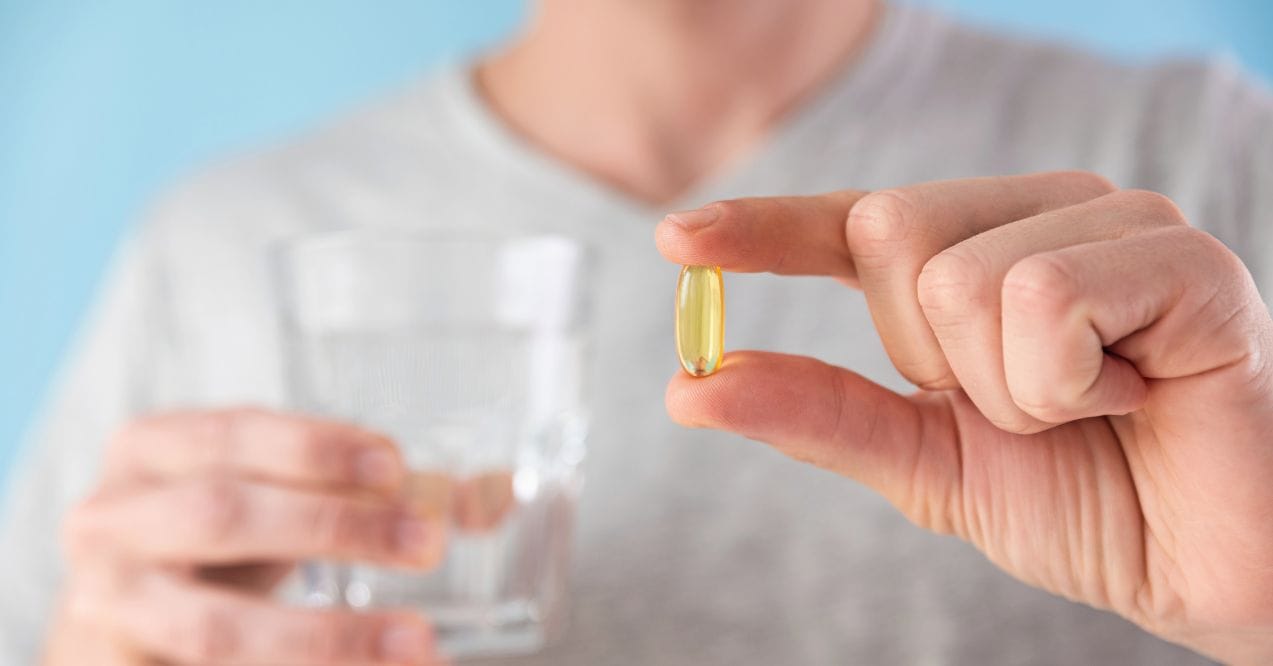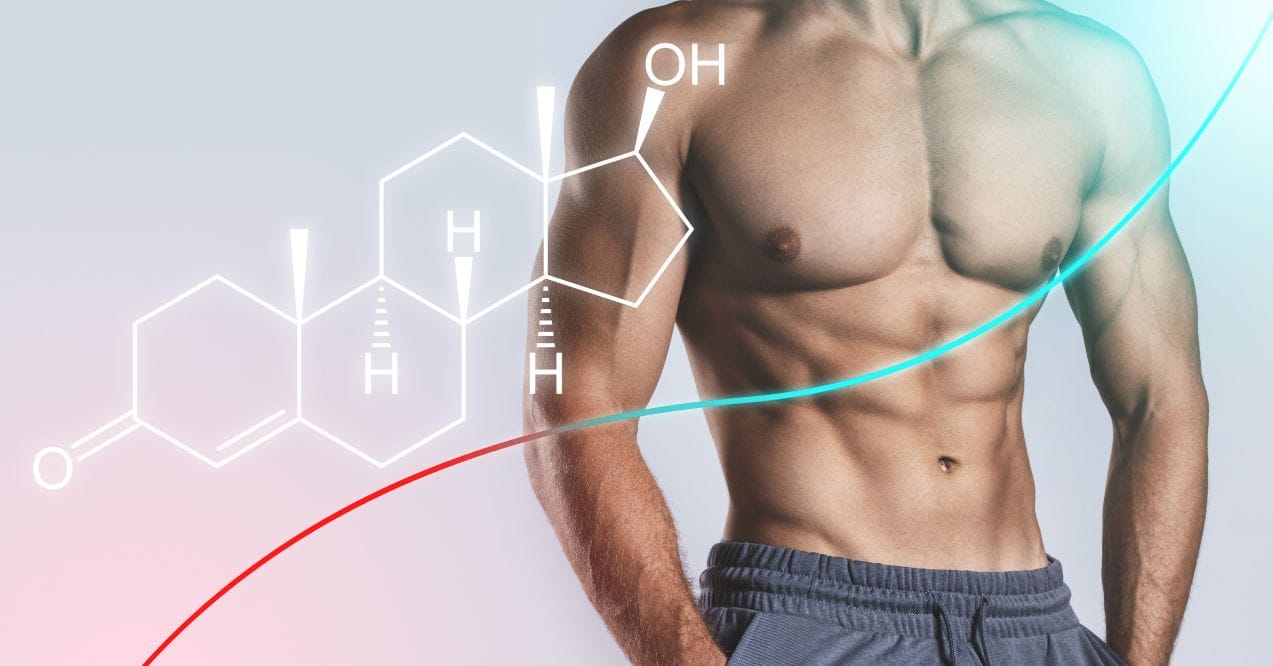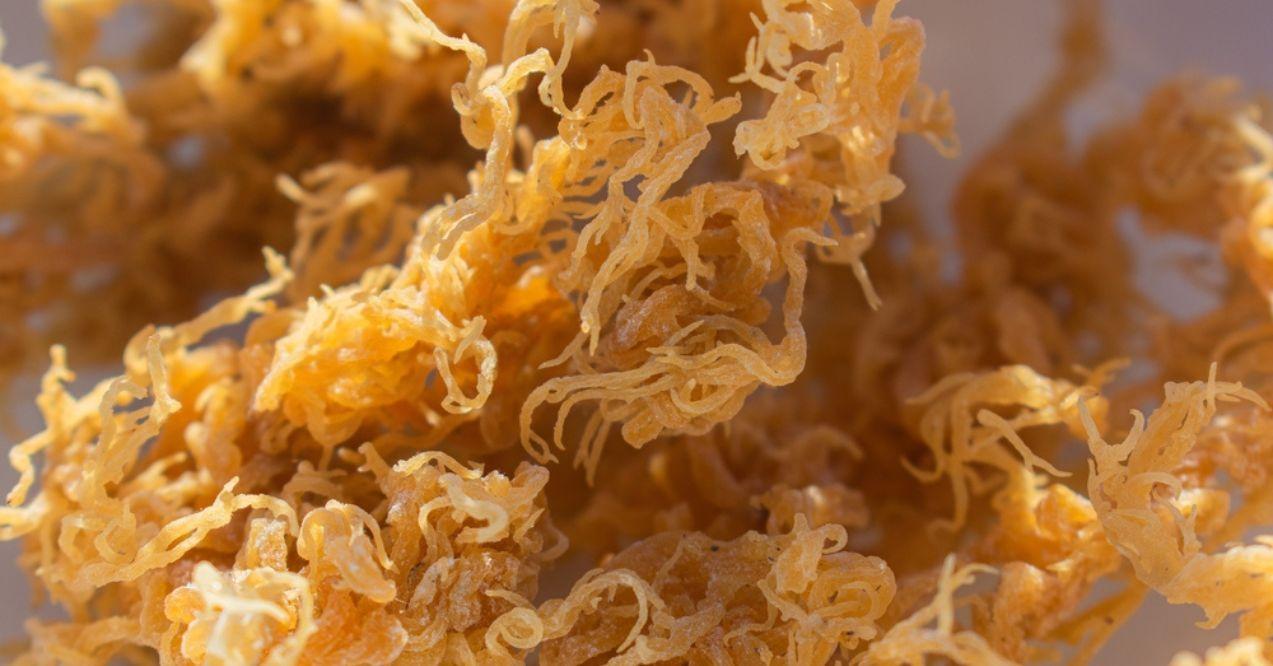15 Foods that Boost Testosterone: Maximize Your Hormone Levels Naturally
Learn about foods that boost testosterone to maintain optimal health. Our guide covers a range of beneficial foods, ensuring a balanced diet for vitality.
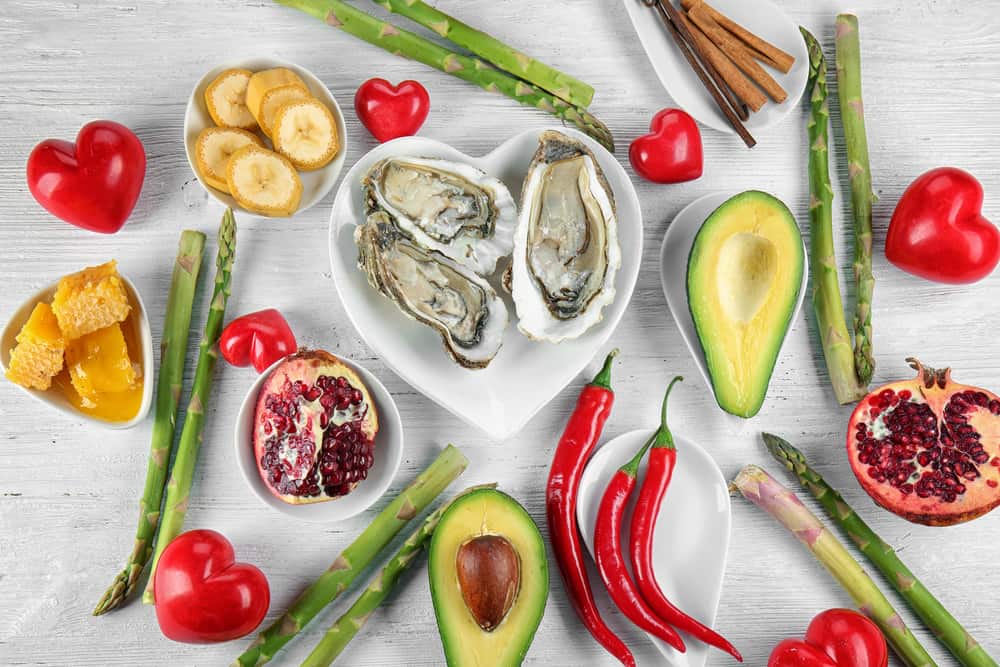

As we age, our testosterone levels naturally decline. While certain foods that kill testosterone can exacerbate this drop, there are fortunately numerous foods that can help counteract this trend. Introducing foods that boost testosterone and making informed lifestyle changes can play a significant role in maintaining and even enhancing our testosterone levels.
Why is it essential to be mindful of our testosterone levels and actively incorporate foods that boost testosterone into our daily diet? Testosterone, a naturally occurring hormone, governs various vital bodily functions and is integral to multiple physiological systems. If testosterone levels dip below the norm, our ability to function at peak capacity diminishes.
By adding testosterone-boosting foods to your diet and avoiding those foods that kill testosterone, you are making a proactive choice for your health and overall well-being.
15 Foods that Boost Testosterone
Foods that raise testosterone are plentiful—they’re also enjoyable and easy to add to any type of diet! We’ll go over 15 foods that increase testosterone, so whether you’re vegetarian, vegan, gluten-free, or have allergies, you can find some healthy testosterone-rich foods to add to your diet.
1. Oysters
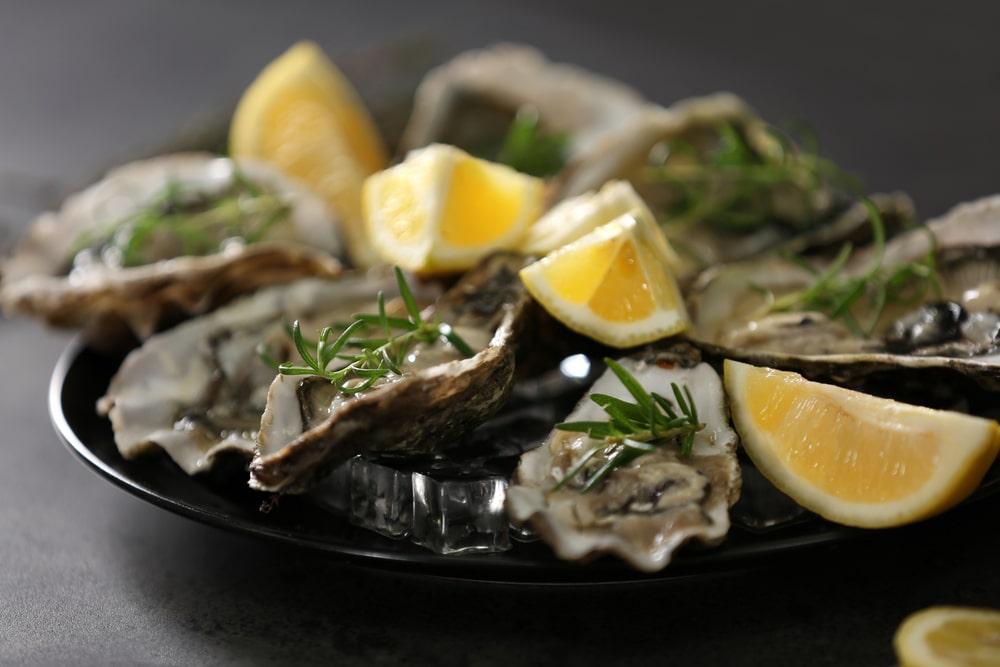
Oysters have been known for centuries as an aphrodisiac—a food that causes a jump in libido. Although this used to be simply anecdotal, there is now science that proves why oysters make you feel like you’ve been listening to Marvin Gaye. Oysters are high in zinc, which is a crucial nutrient in the testosterone-producing cycle.
Interestingly, this isn’t because oysters themselves produce testosterone. Instead, zinc encourages healthy pituitary gland functioning. Healthy pituitary glands stimulate testosterone production in other areas of the body. It doesn’t quite matter where in the hormone cycle the food works, though, just that it’s a testosterone-boosting food! So, enjoy oysters in whatever way you can.
2. Ginger

Although it’s usually considered a spice, ginger makes the list of foods that boost testosterone because it can be consumed on its own as well as added to your favorite dishes.
Ginger is mostly comprised of gingerol, which is a powerful antioxidant that helps to fight oxidative stress throughout the entire body. It also helps to reduce joint stiffness and lower cholesterol, which can help encourage more activity and improve heart health, respectively.
3. Red Meat
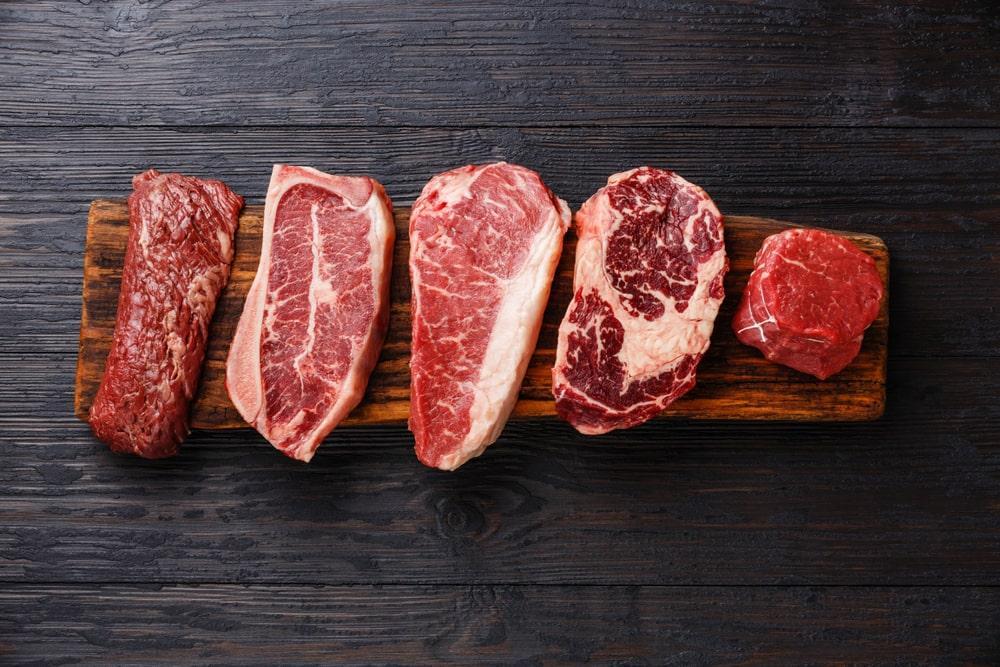
Red meat is sometimes controversial, but when added to an otherwise healthy diet and an active lifestyle, it has several benefits. Not only is it a rich protein source, but it’s also high in iron, B12, leucine, zinc, and sometimes—like in the case of beef liver—Vitamin D. These are all important for keeping one’s testosterone levels in an optimal range.
When choosing red meat to add to a testosterone-healthy diet, choose lean, grass-fed cuts without antibiotics and other harmful chemicals. Make sure, too, that you aren’t pairing red meat with other traditional, unhealthy Western foods, such as those high in salt, trans fats, and processed ingredients.
When eaten in conjunction with high amounts of unhealthy foods, red meat can give people trouble. But conversely, when it’s eaten mindfully and as part of a healthy overall diet, it’s extremely beneficial.
4. Salmon

Many people choose to not add red meat to their diet but still consume plentiful amounts of fish. Almost all types of fish are incredibly good for the human diet, but salmon tops the list. Not only is it a source of protein, healthy fat, and omega fatty acids, but it also has high levels of magnesium and Vitamin B.
Vitamin B is great for giving people energy; those with low testosterone levels often struggle to maintain energy at the levels they want to. The more energy you have, the more exercise and physical activity you can incorporate into your day. This helps boost testosterone.
Magnesium is important for lowering inflammation in the body and for getting healthy amounts of sleep. When people don’t get enough high-quality sleep, their cortisol levels shoot up and the body can’t produce enough testosterone.
Salmon has another important quality that we don’t see in many foods, including testosterone-boosting ones. It helps to reduce the amount of sex hormone-binding globulin, which impedes the function of any testosterone that your body manages to produce. Thus, reducing the amount of this globulin molecule allows the crucial hormone to do its job.
5. Tuna

Another power fish for the win! Tuna, like salmon, is also high in healthy fats and omegas, as well as Vitamin D. What’s so important about Vitamin D? It helps to encourage healthy sperm production, which is connected to high testosterone levels. Again, if you’re a vegetarian but you still consume fish (i.e., a pescetarian), then tuna is one of the best proteins to increase testosterone production.
6. Eggs

If you’re a vegetarian, you might use eggs as one of your main protein sources. Eggs not only contain protein, but they’re also high in Vitamin D, omega-3s, and good cholesterol. These nutritious elements not only encourage testosterone production, but they help build muscle, too! Lower testosterone levels are often associated with muscle loss, so eggs are a powerful tool for getting back the body that you want.
7. Garlic

Garlic makes the list of foods that boost testosterone because it contains allicin. Allicin helps to lower cortisol levels, which are present at high levels in people with stressful lives or who don’t get enough sleep.
High cortisol levels impede testosterone production; conversely, lower levels allow the adrenal glands to make more testosterone and the body to absorb it. Technically, garlic itself isn’t a testosterone-boosting food, but it helps prep the body to make it and use it effectively.
8. Almonds

Almonds are a great source of protein for people who consume a plant-based diet. They’re high in zinc, which is important because many people who have low testosterone levels are deficient in this important mineral. Zinc helps encourage the pituitary gland to release other hormones that aid in testosterone production.
Like garlic, almonds aren’t a testosterone-boosting food at the primary level. Instead, they provide critical amounts of zinc which allow the pituitary gland to release hormones that stimulate testosterone production. Without zinc, testosterone levels drop.
9. Spinach

Spinach is a wonder food, containing vitamins, minerals, and essential nutrients in higher concentrations than in many other foods. You’ve heard it far and wide—eat those leafy greens! Spinach tops the list as possibly the highest testosterone-rich food there is. Why? It’s high in magnesium.
Magnesium levels are positively correlated with testosterone levels for many reasons. Magnesium helps people sleep, which lowers cortisol. Lowered cortisol levels help the body produce and absorb testosterone. It’s also an anti-inflammatory element, and bodies with low levels of inflammation can function more properly in all ways.
Spinach also has high levels of both iron and Vitamin B6, which help to boost testosterone and give you energy. Energy levels are usually low when someone is testosterone-deficient, so spinach is beneficial on many levels.
10. Green Vegetables
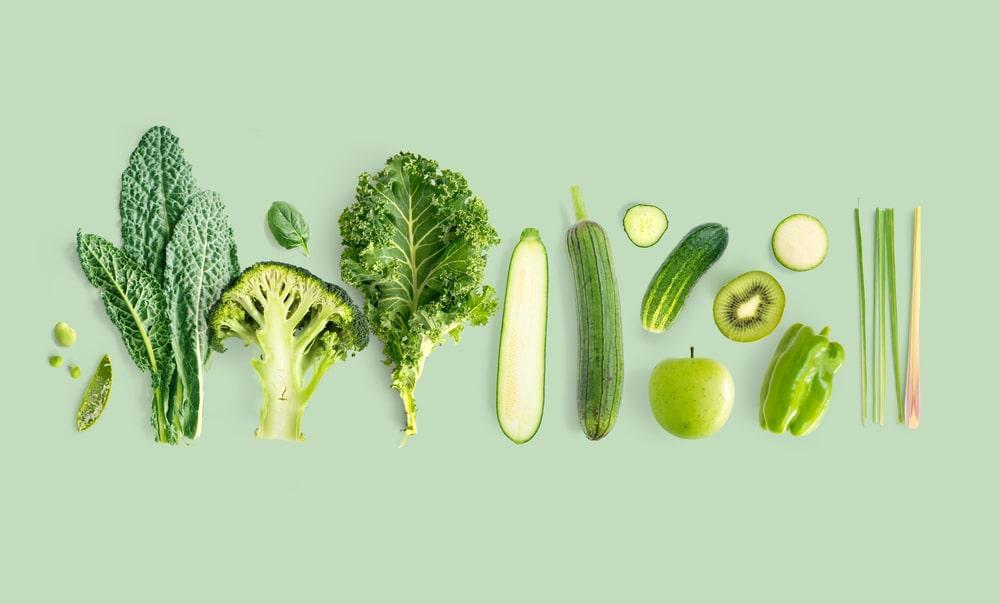
Spinach is considered a green vegetable, of course, but the rest of the green veggie family is also important for keeping testosterone levels in an ideal range. Vegetables in the leafy green family are full of essential nutrients such as:
- Folate
- Potassium
- Fiber
- Iron
- Calcium
- Vitamin A
- Vitamin E
- Vitamin K
- Boron
- Magnesium
How does all this boost testosterone? Many of these nutrients have anti-inflammatory properties. When inflammation is low, the body can both produce and use the testosterone that’s present. Magnesium, of course, helps to lower cortisol levels, too. Vitamin K promotes bone health, which in turn helps boost testosterone levels. Additionally, for those who wonder, ‘Is vitamin K potassium?’ No, it is not; Vitamin K and potassium are distinct nutrients essential for different bodily functions.”
11. Bananas

This power fruit is not only inexpensive, easy to eat, and delicious, it’s full of a whole host of essential vitamins and nutrients. One of these is bromelain, which is positively correlated with high testosterone levels. Bananas also help keep energy levels high, which encourages people to continue making positive lifestyle changes that also maintain high levels of testosterone. Additionally, they’re an anti-inflammatory food, which is essential to keeping all body functions performing at peak levels.
12. Lemons
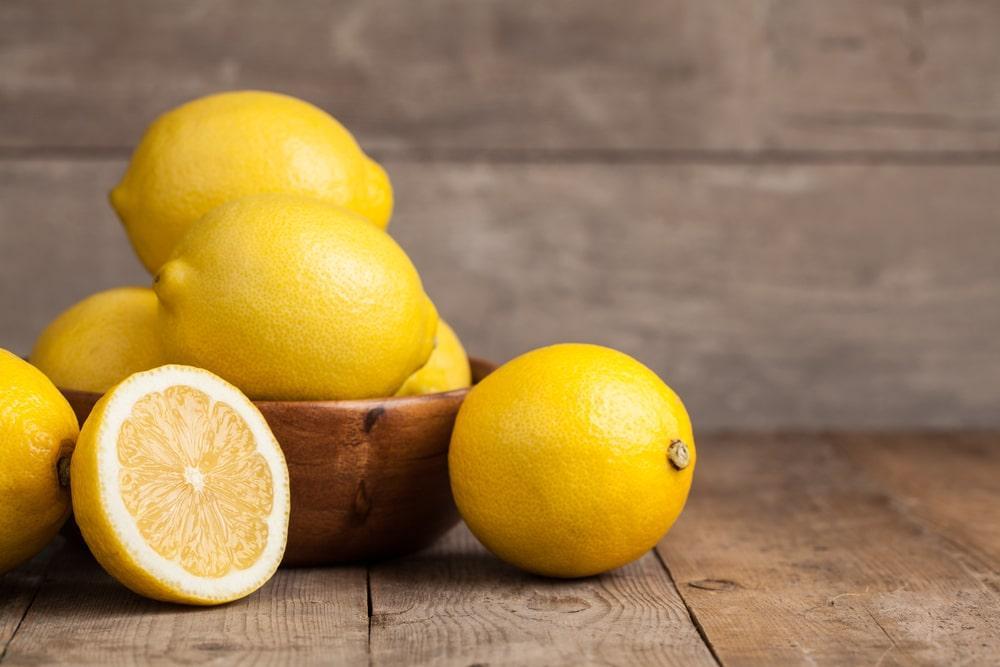
The entire range of citrus fruits is great for adding testosterone to your hormone levels, but lemons are particularly effective. Lemons naturally help lower cortisol levels—which can be excessively high due to stress, lack of sleep, and other factors—and thus help encourage testosterone production. The lower the cortisol amount in one’s body, the more testosterone can be produced and absorbed.
Lemons are also a great source of Vitamin A. Vitamin A is essential for testosterone production and it also helps keep estrogen levels where they need to be.
13. Cereals
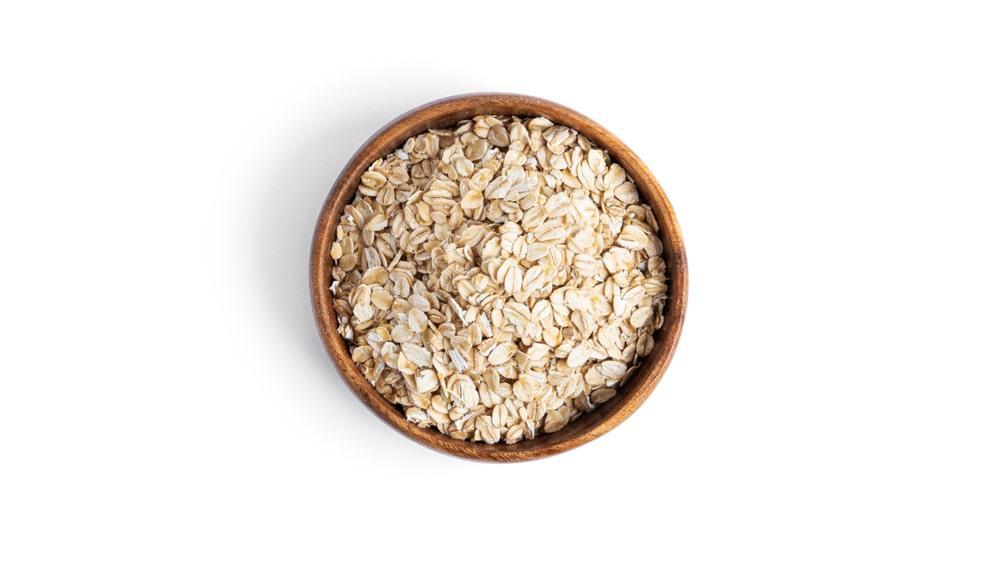
Now, cereal isn’t usually considered a food that’s high in essential vitamins and nutrients, especially when it’s a popular sugar-filled, processed cereal such as the ones we’re conditioned to start our days with. But cereals aren’t always filled with junk!
Highly nutritious cereals such as steel-cut oats have high levels of many types of B vitamins, which are great at helping produce testosterone. Specifically, oat cereal is high in Vitamin B6, which suppresses estrogen. Many people who struggle with low levels of testosterone have excessively high levels of estrogen. When you lower the estrogen, testosterone can do its job.
14. Extra Virgin Olive Oil
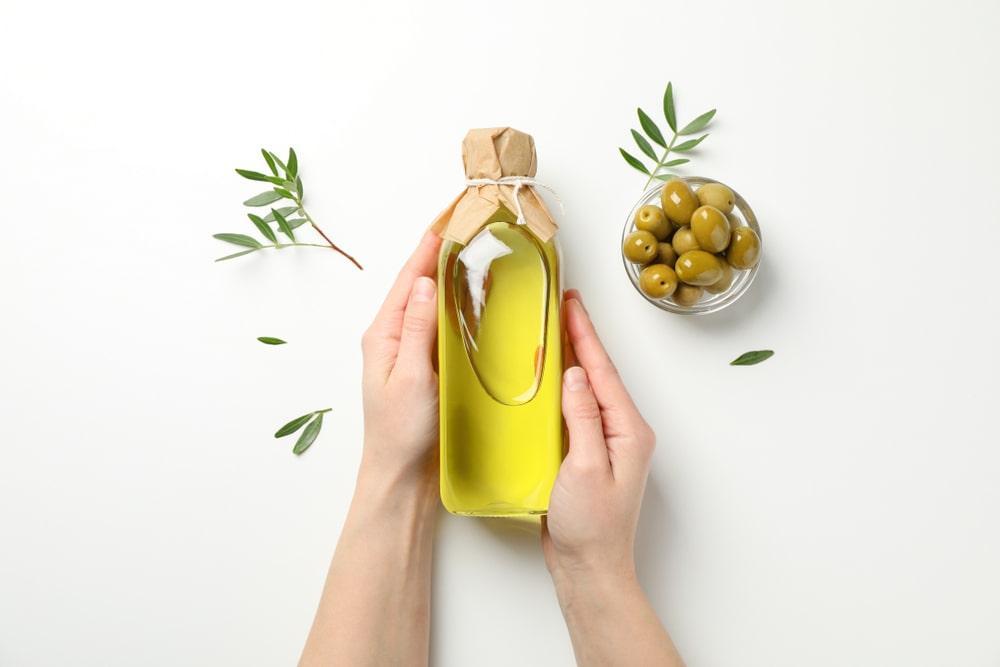
Known familiarly as EVOO, extra virgin olive oil tops the list of beneficial, healthy cooking oils (along with avocado and coconut). It’s full of micronutrients and polyphenols which work to lower inflammation and oxidative stress, which, in turn, boost testosterone levels. EVOO also lowers bad cholesterol levels and raises good ones—you need appropriate cholesterol levels to produce testosterone.
Note: Make sure that you aren’t adding simple “olive oil” to your diet to try and improve health and boost testosterone. Plain olive oil is highly processed, meaning that it has lost most of its nutritive properties. Instead, always opt for the EVOO (organic, when possible).
15. Pomegranates
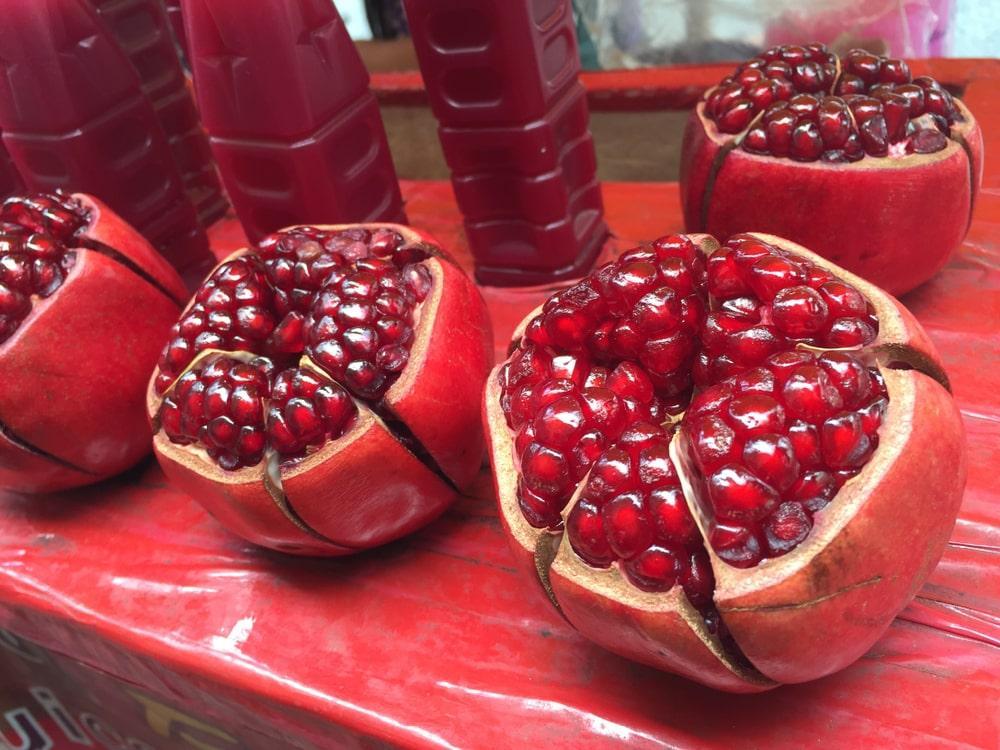
Pomegranates have ancient roots in the nutritious food realm. They’ve been hailed for thousands of years in many countries as one of the best foods for health, as well as for prosperity and fertility.
Not only pomegranates are high in anti-inflammatory properties, but they reduce stress, fight germs, and improve heart health—all of this on top of helping people maintain appropriate testosterone levels.
Foods that Boost Testosterone: Final Thoughts
Testosterone is important for all our body systems, including our moods, energy levels, and libidos. When we include foods that boost testosterone levels into our daily diets, we take charge of our health without adding harmful products or chemicals into our bodies.
When you add testosterone-boosting foods and supplements for men’s health to your diet, you’ll be encouraged to get out there, exercise, and take part in all the activities that you loved in your younger years.
At the end of the day, the best food for boosting testosterone is the one that you’ll enjoy eating the most, just as the best lifestyle change is the one that you can commit to. Try a couple of high-testosterone foods at a time in addition to a supplement and a lifestyle improvement or two to see what makes you feel the best.
Testosterone is a naturally occurring hormone that governs various vital bodily functions and is integral to multiple physiological systems. When testosterone levels dip below the norm, our ability to function at peak capacity diminishes. By including foods that increase testosterone in our diet, we can maintain and even enhance our testosterone levels, ensuring optimal health and well-being.
There are numerous foods that raise testosterone levels. Some of the best foods for testosterone include oysters, ginger, red meat, salmon, tuna, eggs, garlic, almonds, spinach, green vegetables, bananas, lemons, cereals, extra virgin olive oil, and pomegranates. These testosterone-rich foods are not only beneficial for boosting testosterone levels but also offer various other health benefits.
Different foods work in various ways to boost testosterone. For instance, oysters are high in zinc, which encourages healthy pituitary gland functioning, leading to stimulated testosterone production. Ginger contains gingerol, an antioxidant that fights oxidative stress. Spinach is high in magnesium, which helps in sleep and lowers cortisol levels, promoting testosterone production. Essentially, these foods either directly or indirectly support the body’s natural processes to produce and utilize testosterone.
Yes, in addition to foods that boost testosterone levels, one can also consider supplements, regular exercise, quality sleep, stress reduction, weight management, getting enough sunlight, and choosing medications carefully. It’s also essential to avoid foods that kill testosterone, such as soy, dairy, alcohol, baked goods, sugar, mint, trans fats, vegetable oil, flaxseed, and licorice root.
Sign up for our Healthy Living newsletter!
Advertisement. This site offers health, wellness, fitness and nutritional information and is designed for educational purposes only. You should not rely on this information as a substitute for, nor does it replace, professional medical advice, diagnosis, or treatment. If you have any concerns or questions about your health, you should always consult with a physician or other health-care professional. Do not disregard, avoid or delay obtaining medical or health related advice from your health-care professional because of something you may have read on this site. The use of any information provided on this site is solely at your own risk.



